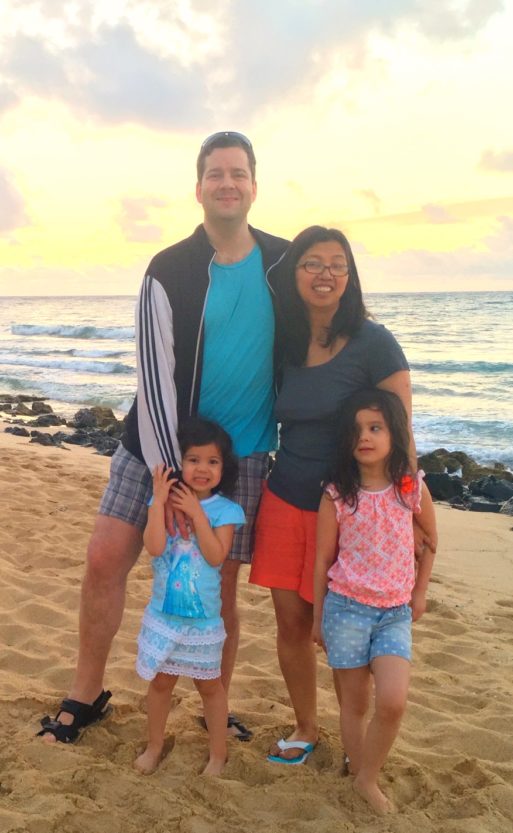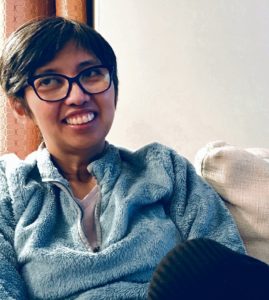Learning to Die Means Learning to Live
“Dying has taught me a great deal about living,” says Julie Yip-Williams in her book, “The Unwinding of the Miracle: A Memoir of Life, Death, and Everything That Comes After.” Hers is the story of a 37-year-old woman being pulled toward death by metastatic colon cancer.
Julie Yip-Williams was born to an ethnic Chinese family in Vietnam in 1976. Julie’s older sister had been born with a mild form of congenital cataracts, and when the paternal grandmother held Julie, she realized that this baby, too, had vision problems. The infant did not react to light. Immediately, the grandmother commanded her son and his wife to go to an herbalist. This herbalist would be paid to give the baby an elixir that would keep her from ever waking up again.
The Unthinkable “Act of Mercy”
The grandmother fervently believed that a baby with a disability would have a lifetime of suffering. In eliminating that life, the grandmother reasoned that she was showing the infant a kind of mercy — keeping her from suffering her whole life.
According to the grandmother, Julie was sure to have a miserable existence. Her physical disability would be an embarrassment and bring shame to the family. Julie would not be able to work and would be a burden to her family. She would be unmarriageable. What man would ever want to take on a woman who couldn’t see?
In Chinese culture, parents are to be respected, and their commands are to be obeyed. Since Julie’s father lived with his parents, Julie’s mother was an in-law daughter without power and had to do what was demanded of her.
So one morning, Julie’s parents dressed her in torn, stained old baby clothes. “It would be a waste for her to wear anything else,” said the grandmother. Julie’s mother and father reluctantly traveled to the shop of an herbalist carrying their blind daughter, dressed in rags.
The herbalist refused to administer a lethal potion to the baby, and Julie’s parents were overcome with relief and gratitude.

Julie finds her bliss with her husband Josh Williams and their two daughters
Credit: fitterafter50.com
The Beginning of a Miracle
It was the beginning of a miracle. A blind baby was born to a poor Chinese family in Vietnam and allowed to live.
The miracle continued when that same child survived the flight of her family from Vietnam traveling on an old, dilapidated boat carrying 300 people over the rough waters. She was 2 years old.
The family’s trip to the United States was sponsored by the Catholic church, and after a stay in a camp in Hong Kong, the family arrived in California. With the help of sponsors, Julie received surgery which enabled her to have minimal vision. Still legally blind, Julie would never be able to drive. But aided by heavy glasses, she could be independent.
Her miracle continued.
The Bliss of Traveling Solo
Julie Yip-Williams had a brilliant mind. She graduated from Williams College and Harvard Law school. She became a practicing attorney working for a large firm in New York. She found her “bliss” in traveling the world by herself. She says, “In the greatest of ironies, traveling alone made me feel whole and complete inside. It helped to heal my anguished soul, which for so long had been obsessed with the metaphysical questions.”
By the time she was 31 years old, Julie had traveled to seven continents by herself.
She found more bliss in Josh Williams, her husband, and the father of her two daughters, Mia and Isabelle.
A Gamut of Emotions
“The Unwinding of the Miracle” is Julie’s own account of traveling from health to death. She is brutally honest about her anger at facing mortality at such a young age. She does not shy away from talking about the range of emotions that she went through. Intense bitterness, jealousy of others who didn’t have the dreaded diagnosis, isolation, rage, depression, and an overwhelming feeling of impotence are some of the feelings she discusses.

Photo: Paul LeMarc Brown
Julie also describes the battle between hope and acceptance, discussing the “miracle” industry and how we are taught that we must always have hope. She wonders, why, when death is inevitable, are we told to continue to hope for a miracle?
The book includes a letter to her daughters, written a year and a half before her death. Williams tells them, “This is my challenge to you, my sweet girls, to take an ugly tragedy and transform it into a source of beauty, love, strength, courage, and wisdom.”
“The Unwinding of the Miracle” ends with an epilogue by Julie’s husband that discusses the pain the disease brought their family, often causing intense, heated arguments. It describes Josh’s recognition that their paths were diverging. Julie was accepting death and leaving him “in stages” while Josh was thinking of a future without the continual presence of disease. He was contemplating a different life for him and their girls. In his intense love for Julie, he understood her need for release from the pain, but he was terrified to be without her. His love wasn’t dying even though she was.
Julie’s cancer started in the colon and spread to other major organs including the lungs, liver, and the ovaries. Her disease took her on a journey toward death that lasted more than four years.
Her acceptance of death and the eventual discovery of peace resonates loud and clear when Julie says before dying, “I will eagerly greet the end of this miracle and the beginning of another.”
Even louder is her fervent admonition to the rest of us: “Live while you’re living, friends.”
Julie Yip-Williams was 42 years old when she died.

 “The Unwinding of the Miracle” by Julie Yip-Williams
“The Unwinding of the Miracle” by Julie Yip-Williams



 “As Tears Go By” by Marianne Faithfull
“As Tears Go By” by Marianne Faithfull

 Funeral Favors Offer Visitors a Tangible Memento
Funeral Favors Offer Visitors a Tangible Memento















